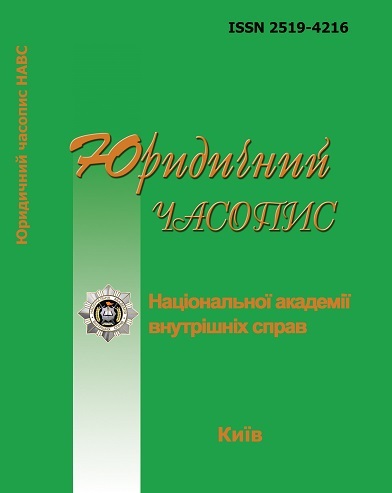Procedural and Educational Requirements for Legal Personality of Medical Specialist and Forensic Expert Participating in Criminal Proceedings
Abstract
Involvement of specialists in the field of medicine contributes to the goals of rapid, comprehensive and objective solving of the investigation of crimes.
Based on the forms of application of special medical knowledge, there is a need to consider the legal personality of a medical specialist and a forensic expert during a pre-trial investigation and a judicial investigation.
Given the different specialization of physicians, the investigator should, when choosing which physician to be included in the proceedings, need to know what qualifications the doctor should answer.
During the forensic examination the expert solves questions of a medical nature only, while he must be competent in them and have sufficient level of knowledge.
The criminal procedural legislation and a number of departmental normative legal acts regulating the participation of a medical specialist and a forensic expert in criminal proceedings are analyzed. The procedural position, rights and obligations of subjects having special medical knowledge are explored, some aspects of educational requirements, which are put forward to them, are disclosed. The emphasis is on the changes that have taken place with the adoption of the current Criminal Procedural Code in these matters. The shortcomings of the legal regulation of this problem were identified and proposals were made for improving the norms of the domestic legislation regulating the said activity.
Medical professionals and forensic experts should strictly adhere to the procedural and educational requirements imposed upon them if they are involved in the investigation of crimes. Compliance with all procedural and other legal norms by the participants in criminal proceedings provides a complete, comprehensive, well-founded investigation of all the circumstances of the commission of the crime and the establishment of the perpetrators.Downloads
Abstract views: 102 PDF Downloads: 108
Copyright (c) 2018 Law Magazine of the National Academy of Internal Affairs

This work is licensed under a Creative Commons Attribution-NonCommercial-NoDerivatives 4.0 International License.
- Authors reserve the right to authorship of their own work and transfer to the magazine the right of the first publication of this work under the terms of the Creative Commons Attribution License, which allows other persons to freely distribute published work with mandatory reference to authors of the original work and the first publication of an article in this magazine.
- Authors have the right to enter into separate additional agreements on non-exclusive dissemination of the work in the form in which it was published in the journal (for example, to post an article in the institution's repository or to publish as part of a monograph), provided that the link to the first publication of the work in this journal is maintained.
- The journal's policy allows and encourages the posting of articles by authors on the Internet (for example, in electronic storehouses of institutions or on personal websites), both before the submission of this manuscript to the editorial office and during its editorial processing, as this contributes to the creation of a productive scientific discussion and positively affects the efficiency and dynamics of citing the published work.




